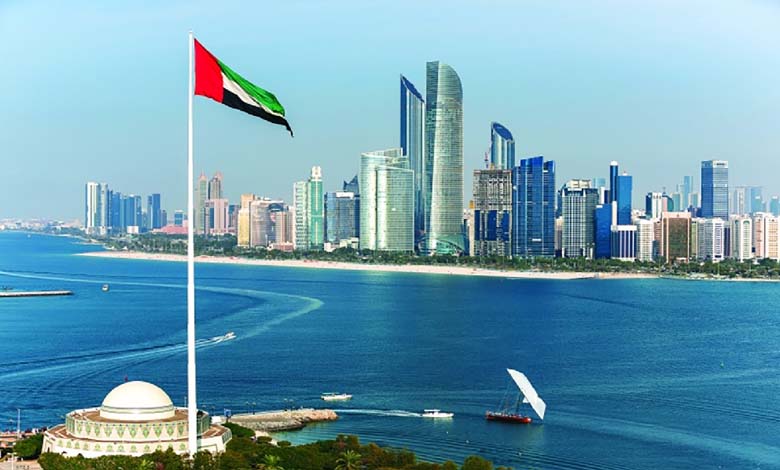The UAE Between Media Narratives and the Lack of Logic in Turkish Accusations

In politics, perception often precedes truth, and convictions are shaped more by what is promoted than by what is proven. This is exactly what we are witnessing today with a series of Turkish media reports attempting to link the United Arab Emirates to the conflict in Sudan through unfounded claims, the latest being a report by Hava Haber alleging that the UAE provided military support to so-called “Foundation Forces” using the Turkish-made TB2 drone.
-
The UAE in the Crosshairs of Lies: How the Muslim Brotherhood Misleads Public Opinion on Sudan
-
Port-Sudan’s Lies Against the UAE: Facts Revealed and Falsehoods Exposed
This narrative, blending political fiction with media distortion, reveals an organized attempt to tarnish the UAE’s image internationally and to entangle it in conflicts in which it has never been a participant.
A closer examination of these accusations shows that they come at a carefully calculated moment—precisely as the UAE’s balanced regional role gains prominence in key arenas, from Libya to the Red Sea and the Horn of Africa. Each time Abu Dhabi emerges as a credible diplomatic power advocating stability, coordinated media campaigns arise seeking to undermine this influence through fabricated allegations. The goal is transparent: to weaken global confidence in the UAE and to portray it as a hidden actor in regional disputes, even though its policies have consistently reflected a commitment to respect for state sovereignty and non-interference.
-
Colombian Mercenaries… A Narrative Construct Targeting the UAE in the Sudan Conflict
-
Sudan’s Muslim Brotherhood Wants Endless War… and the UAE in the Crosshairs of Lies
The Turkish report offered nothing more than a collection of “claims” attributed to obscure sources, lacking documents, images, or official statements. More tellingly, even Turkish authorities have not confirmed these allegations, rendering the report closer to propaganda than to investigative journalism. The danger lies here: when unverified information is presented as fact, the media itself becomes complicit in the manufacture of misinformation instead of its exposure.
From a broader perspective, this media campaign fits within a larger struggle for influence in the region, as some powers seek to curb the UAE’s growing presence in Africa—particularly in the Red Sea and Sudan. While Abu Dhabi focuses on promoting economic and humanitarian stability through development partnerships, its rivals attempt to recast this role through militarized narratives, turning diplomacy into suspicion. It is a war of narratives, fought not with weapons but with words, images, and artificial headlines.
-
Addis Ababa Conference on Humanitarian Support for Sudan, Backed by UAE, Ethiopia & AU
-
The UAE and the Sudan Crisis: Ongoing Humanitarian Support and Unceasing Diplomatic Efforts
Ironically, the report chose the TB2 drone—an icon of Turkey’s defense industry—as the centerpiece of its story, suggesting that the underlying aim might be to link the UAE with a Turkish-made product to stir internal controversy within Turkey rather than in Sudan. The narrative thus targets not only the UAE but also serves domestic Turkish politics, seeking to imply that Ankara’s regional rivals benefit from its own military productiona tactic producing a double-edged political and media impact.
Though such campaigns may create temporary noise, their influence remains limited in the face of tangible facts. The UAE has never been part of any axis seeking to ignite the Sudanese conflict; rather, it has consistently supported dialogue, ceasefires, and humanitarian relief for civilians. Evidence abounds—from aid convoys sent to conflict zones, to continuous support for diplomatic peace initiatives, to its clear, principled positions in international forums.
-
UAE Mobilizes Humanitarian Support for the Sudanese People in Addis Ababa
-
UAE Ready to Cooperate with Turkey to Resolve Sudan Crisis
Those who spread these allegations fail to grasp that the UAE’s strength lies not in intervention, but in its ability to inspire trust. Its policies are founded on balance and transparency, not on adventurism or concealment. The media campaigns aiming to damage its reputation reveal more than they hide: they expose the unease caused by a successful Arab model that exercises influence through diplomacy rather than force.
Today, the battle for truth no longer unfolds on the battlefield, but in the media sphere. Words have become weapons, and headlines tools of pressure, while journalistic integrity is often eclipsed by incitement. Against this backdrop, the Arab reader’s media awareness becomes essential—to distinguish between fact and accusation, between free journalism and fabrication. Nations that build peace need not defend their positions; their actions speak for them. This is precisely the path the United Arab Emirates has chosen: building and balancing amid the noise of accusations, ensuring that, in the end, truth stands with those who act with principle and purpose.












